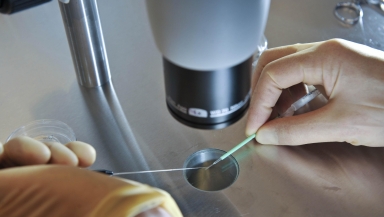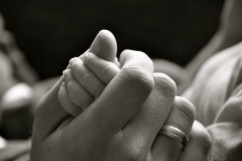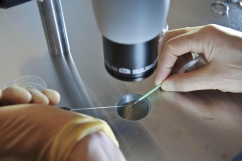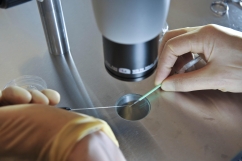
The UK today becomes the first country in the world to allow the creation of a baby from the DNA of three parents. The move, which was approved in law earlier this year, comes into force today, despite concerns which have been outlined by Christian and secular groups.
The procedure involves the replacement of a small part of the mother's DNA with that of a donor so that certain genetic health conditions are not passed onto the child. Researchers at Newcastle University say the technique could help around 2,500 families a year.
But because this means that the baby will technically have DNA from two women and a man, ethical concerns have been raised.
The Roman Catholic Church opposed the change in law which allowed the process to be legalised, suggesting that it "dilutes parenthood." The Church of England, meanwhile, said it wasn't necessarily opposed to the procedure in principle but wanted more research on the impacts as well as further debate on the ethics of the issue.
Other critics have suggested that the procedure is a step too far towards doctors 'playing God.' When put to a vote in the House of Commons, all three main party leaders at the time, Nick Clegg, Ed Miliband and David Cameron, voted in favour of approving the procedure.
Sally Cheshire, the chair of the Human Fertilisation and Embryology Authority, said: "Britain is the first country in the world to permit this treatment, and it is a testament to the scientific expertise and well-respected regulatory regime that exists across the UK that Parliament has felt able to approve it."
From next month, clinics can apply for a licence to carry out the procedure and it's expected that the first attempt may be made by the end of the year. Regulators in the US are thought to be considering whether to approve the procedure as well.
















